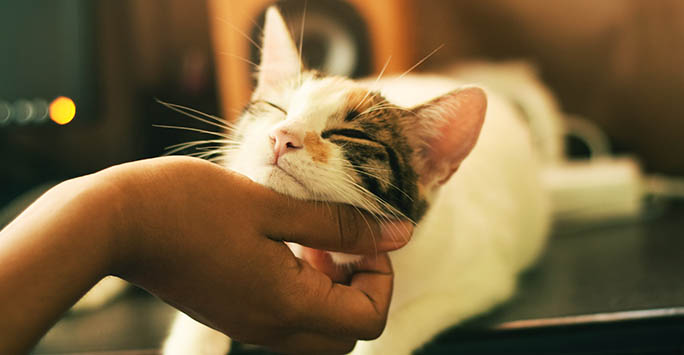Petconsent January 2021 blog - Petconsent launches Veterinary Humanities UK special interest group
Posted on: 29 January 2021 by Dr Carol Gray, ESRC Postdoctoral Fellow in the School of Law and Social Justice. in Blog

An exciting development for Carol Gray's Petconsent project has been the launch of the new Veterinary Humanities UK special interest group. This is a new initiative by Alison Skipper (a PhD scholar at KCL researching dog history) and Carol; it’s an attempt to create a community of researchers who look at veterinary topics from a humanities/social sciences basis.
It seems strange to be writing a blog for Petconsent when I have stepped away from it for a couple of months to work on another project. All the same, I thought it was worth updating everyone (our loyal readers!) on what has been happening in the world of shared decision-making in veterinary practice since our workshop in December.
A very exciting development has been the launch of our new Veterinary Humanities UK special interest group. This new initiative by Alison Skipper (a PhD scholar at KCL researching dog history) and myself is an attempt to create a community of researchers who look at veterinary topics from a humanities/social sciences basis. So instead of using traditional science approaches (lots of numbers and statistical analysis), we are exploring using methods from arts and humanities disciplines (including, of course, law and ethics) to look at topical problems in veterinary practice.

Photo by Yerlin Matu on Unsplash.
Let’s consider an example. There is a worrying research finding that for vets in practice, clients are high up in the list of things that vets dislike about their jobs. In order to investigate this in more depth, we could ask vets to narrate stories of good and bad experiences with clients. We could use literature to source examples of ‘good’ clients and explore what makes these people ‘good’ clients, according to authors. We could then compare the vet narratives with the examples from literature to see where there is a disconnection. We could ask clients to describe how they see themselves with reference to these examples from literature, interviewing them to find out whether they consider themselves to be ‘good clients.’ Finally, we could compare the two pictures of good clients to see where there is misunderstanding between the two groups. I am very happy for someone to pick this idea up and run with it!
If any researchers are working with veterinary topics and are either using arts and humanities approaches already, or would be interested in investigating their use, please contact me and I will add you to the mailing list for the Veterinary Humanities group. You can also follow us on Twitter @VetHumanitiesUK.

'Book of Ideas' photo by Nong Vang on Unsplash.
This month’s blog has been a short catch-up. However, I’d like to end with a report on the possible development of an online course in shared decision-making, aimed at pet owners. Plans are at the very early stages, but it would provide pet owners with the knowledge to evaluate online resources for reliability and accuracy, encourage them to prepare for visits to the vet practice by preparing a set of key questions to ask, and give them the foundations to participate fully in decisions about their pets’ healthcare and veterinary treatment. Our aim is to redress the balance in shared decision-making so that both parties are equal partners. Watch this space!

Carol Gray
Dr Carol Gray is an ESRC Postdoctoral Fellow in the School of Law and Social Justice. After qualifying as a veterinary surgeon from the University of Glasgow, Carol spent 15 years in clinical practice. A career change to veterinary education included 13 years in the veterinary school at the University of Liverpool. Completion of a Masters in Medical Ethics and Law from Keele University laid the foundations for an obsession with informed consent in general, but particularly in the veterinary context. Carol was awarded her PhD from the University of Birmingham in 2019 and now holds an ESRC Postdoctoral Fellowship here in the School of Law and Social Justice, where she is developing the ideas from her thesis and bringing together consent and shared decision-making in the veterinary clinic.
As part of her ESRC Fellowship, Dr Carol Gray has been researching and writing monthly Petconsent blogs since December 2019.
Find out more about Carol's Petconsent research, which also includes a resource list of health information for pet owners.
Email Carol at: carol.gray@liverpool.ac.uk
Keywords: Law, workshop, pets, consent, Research, Pet owners, collaboration, shared decision-making, Veterinary Humanities UK, Interest group.